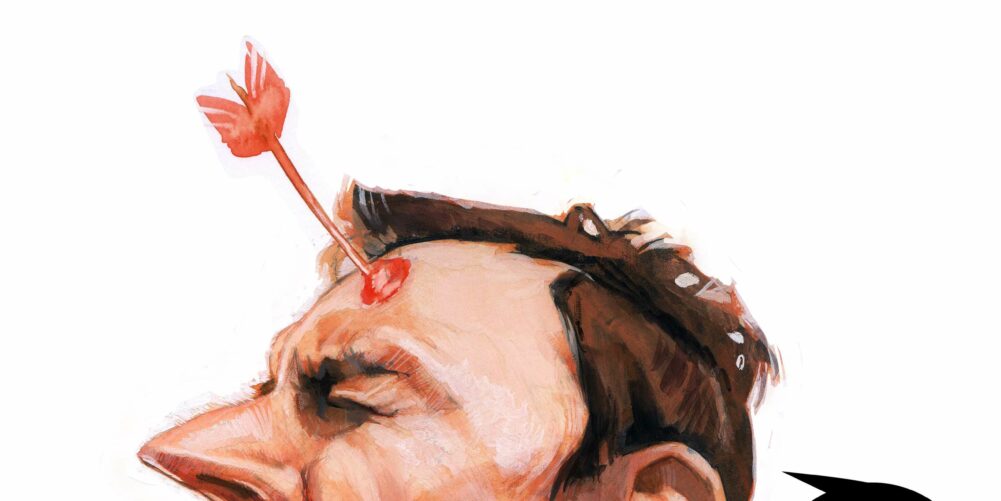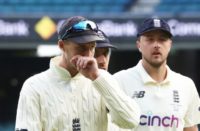It’s not difficult to conjure up the scene in the Sri Lankan dressing room just before the start of the Headingley Test match. In comes the fourth umpire with a box of balls to choose from and a startled opening bowler shouts across to his captain: “Hey, skip. We’ve got ten Dukes balls in here, and two that appear to have fallen off a brass monkey.”
Full marks to the cleverclogs at the ECB who decided it would be a good idea to stage two Test matches in May in Leeds and Durham, not least as the former holds the joint record (England v West Indies, 2007) for the coldest day ever recorded at a Test match. The Sky cameras gave us their customary quota of close-ups in the crowd, and while the well-lubricated nuns and Vikings looked cheerful enough, they mostly honed in on miserable looking people wearing bobble hats and turning various shades of blue.
As for Durham, it’s the thick end of a hundred miles further north, which means that outbreaks of sunstroke in May are pretty rare, as are sightings of basking sharks in the River Wear. Little wonder, then, that the shivering Sri Lankans were always scripted to provide the kind of yawn-inducing contest that an ailing product like Test cricket can ill afford.
Good news for the England bowlers, of course, who didn’t have to do much other than put the ball in the right area and wait for the next batsman to nick it, and give grateful thanks that he wasn’t out there for too long before scuttling back to his seat next to the dressing-room radiator. Appropriately enough in North Sea trawler weather, it was the equivalent of catching mackerel.
Neither was there any respite from the hapless batting theme during the rain interruptions when Sky ran a programme entitled England in the 90s. Batting collapses have always provided some of Test cricket’s most riveting moments, and watching the various clips reminded us that this was a period when England turned the spineless surrender into something approaching an art form.
There was something about England at that time that made you tremble even when things were going well – in the certain knowledge that something horrible is about to happen. A bit like one of those Westerns when no sooner has the cowboy said: “I don’t like it, it’s too quiet….” than an arrow gets him straight between the eyes.
Trinidad 1994 was one of their more spectacular meltdowns, all the more shocking for the fact that they were apparently cruising to victory midway through the fourth day. A modest fourth-innings target looked likely until Graeme Hick dropped Shivnarine Chanderpaul twice in the slips, although even then it looked no more than a minor irritant, and, given that the time difference meant that my reports spanned three editions, The Independent’s first headline of the day was a relatively optimistic “Gritty Chanderpaul Holds Up England Victory Charge.”
However, by the time England finally set off in chase of no more than a mildly challenging 194, morale was not what it might have been, and the second edition coincided with me dictating down a dodgy phone line (no wifi or email in those days) an opening paragraph lamenting the loss of the captain, Michael Atherton, to Curtly Ambrose’s first ball.
I was almost done when a loud roar prompted me to ask what had happened, which turned out to be Mark Ramprakash getting run out. “Right, let me tweak that paragraph a bit”, I said. But no sooner had the words “double early blow” left my lips, than Robin Smith’s off stump was halfway back to the pavilion. Five for three, followed by, “I can’t keep up with this. Just go with what you’ve got.”
By close of play, bang on another edition deadline, the scoreboard read 40 for 8, and it was all too much for one correspondent, who shouted down the phone: “Sorry, I just can’t cope. You’ll have to write it in the office.” Something was said back, possibly along the lines of inviting a shellshocked soldier in the trenches to pull himself together, but the poor chap was – like England’s batting – gone. The last words that he uttered before hanging up and setting off for a triple rum punch were: “Just write: ‘England are crap’. Full stop.”
It was a bit like one of those club-cricket collapses, where, unlike a Test match, the chaos is visible to all given that the players are all gathered outside, scrambling around in the solitary kitbag for the one remaining box, and trying to find two pads with the buckles still attached, and one right-handed glove to go with the two left-handed ones.
One of the best collapses that I ever saw involved a club game in Leicestershire in 1991. I witnessed it by accident, from a pub-garden area after a game of golf, with a wiry West Indian bowling frighteningly fast at the neighbouring cricket ground. He took nine wickets for two runs (both no balls), eight bowled and one lbw, and was only deprived of all ten when the visiting No 11 decided – wisely in my view – that he wasn’t feeling well enough to go out and bat.
The demon bowler turned out to be an eccentric character by the name of Vaughn “Hungry” Walsh, who’d already attracted interest from Leicestershire despite them having Winston Benjamin on their books as their overseas player. Hungry was once offered a tour game by Somerset against the Sri Lankans before deciding that he’d stick to playing club cricket thanks all the same.
I forget how many runs that team were bowled out for, but it wouldn’t have been many more than Surrey mustered against Essex in a Championship game in 1983 at Chelmsford that turned out to be a trifle embarrassing not only for the away team, but also for one of the national newspaper reporters covering the game.
After an uneventful day, he decided to leave early for an appointment, ending his report with “…. and by the close Surrey were “blank for blank”. When he phoned the office later to ask if there were any queries, the sub-editor said that there were not, but that he might care to consider a re-write in the light of the fact that, having inserted the two missing numbers into the blank spaces, his final sentence now read: “…and by the close, Surrey were 14 for ten.”
This piece originally featured in The Cricket Paper, Friday May 20 2016












